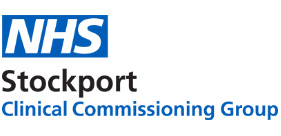The impact of Coronavirus (also known as COVID-19) has been felt deeply by everyone through:
- limiting social contact with friends and family,
- changing the way we work and educate our children,
- people have lost their jobs and seen their businesses suffer
- healthcare staff and other key workers have been put under enormous pressure
The pandemic has had a devastating impact on health and wellbeing for so many in our communities.
For information on how to access services safely please visit: Reopening Health Services – Covid-19
Your voice matters
We want your help to shape our plans to safely reopen local services
There will be a range of opportunities to get involved and find out what is happening across Stockport to reopen health and care services. We also want to hear from you on:
- What has changed for you and your family in accessing health services during COVID and the lockdown?
- What do you feel has worked well in accessing health services during this period and what could be improved?
- What matters to you as services re-open over the next few months?
Please share you views by contacting us: stockportccg.communications@nhs.net
The impact of COVID on Stockport
As a result of COVID a number of services have had to temporarily close their doors. This was necessary to enable clinical staff to be redeployed and to keep people safe, by reducing potential exposure to the virus.
A number of other changes were also made to keep staff and patients safe, including:
- Hospital wards had to be split into COVID and non-COVID areas;
- Non-essential services were paused;
- Many services moved to phone or video consultations.
Where face-to-face services have continued, protective equipment (PPE) is used and appointments are spaced apart to allow staff to clean rooms, wash hands and change PPE between patients.
During the last few months we have seen changes in how people are using local NHS services:
- The number of people attending A&E reduced by 40%, with particular dips in those attendances that require no investigation or treatment;
- Emergency admissions to hospital reduced by 25%;
- Referrals into the hospital for planned care reduced by 53%;
- While non-emergency hospital activity reduced by 63%;
- Community service activity changed significantly, with a 44% increase in palliative care and a 41% increase in COPD nursing;
- The focus of social care teams has switched to developing packages of care that help to get patients out of hospital and back into the community.
Where are we now in Stockport?
As a result of the pandemic there is a backlog of patients waiting for routine care:
- In April, the waiting list stood at 27,489;
- GP referrals reduced by 53%, which means waiting lists will rise following the easing of lockdown;
- There were 950 missed appointments for cancer screening programmes;
- Health and care staff were redeployed into crisis response services – meaning that other care had to be put on hold;
- And nationally, emergency Contracting Measures were put in place.
How will local health and care services re-open?
Health and social care partners in Stockport are coming together to coordinate recovery efforts, including:
- Supporting people to recover from COVID-19 and preparing for future outbreaks;
- Re-starting non-COVID services in a coordinated way to meet local needs and capacity in the system;
- Building on innovation and good practice developed throughout the crisis
- Reducing health inequalities that were exacerbated by the pandemic;
- Creating a resilient and supported workforce;
- And building back better with a financially sustainable system.
Continuing to keep staff and patients safe
- Social distancing limits the amount of face-to-face activity that can be safely delivered.
- Extra time will is needed between appointments to prevent infection
- Separating wards will reduce the number of hospital beds by almost 40%.
- The number of operating theatres will be reduced in order to maintain safety and reduce infection.
- To be prepared for any further COVID surges, critical care capacity cannot exceed 80% in the hospital.
- The bed occupancy in General and Acute wards cannot exceed 85% of available beds.
- We have created 36 new community beds in Stockport for COVID-recovery.
Health and care partners have agreed the following principles to guide our recovery plans:
- We will work together as One Stockport putting local people above organisational needs
- We will learn from this pandemic and build a better system
- Our plans must prioritise the safety of patents and staff
- We will shift the focus from treating illness to helping people stay well
- Mental health and wellbeing is as vital as physical health
- We will put people in control of their own care and empower them to be independent
- We will reduce dependence on hospital care and provide care as close to home as possible
- We will continue to use technology to improve access to services and reduce waiting times, but keep face-to face options available for those who do not have access to technology
- And we will target support to those people most affected by COVID to ensure that everyone in Stockport benefits from high quality services that deliver strong health outcomes
